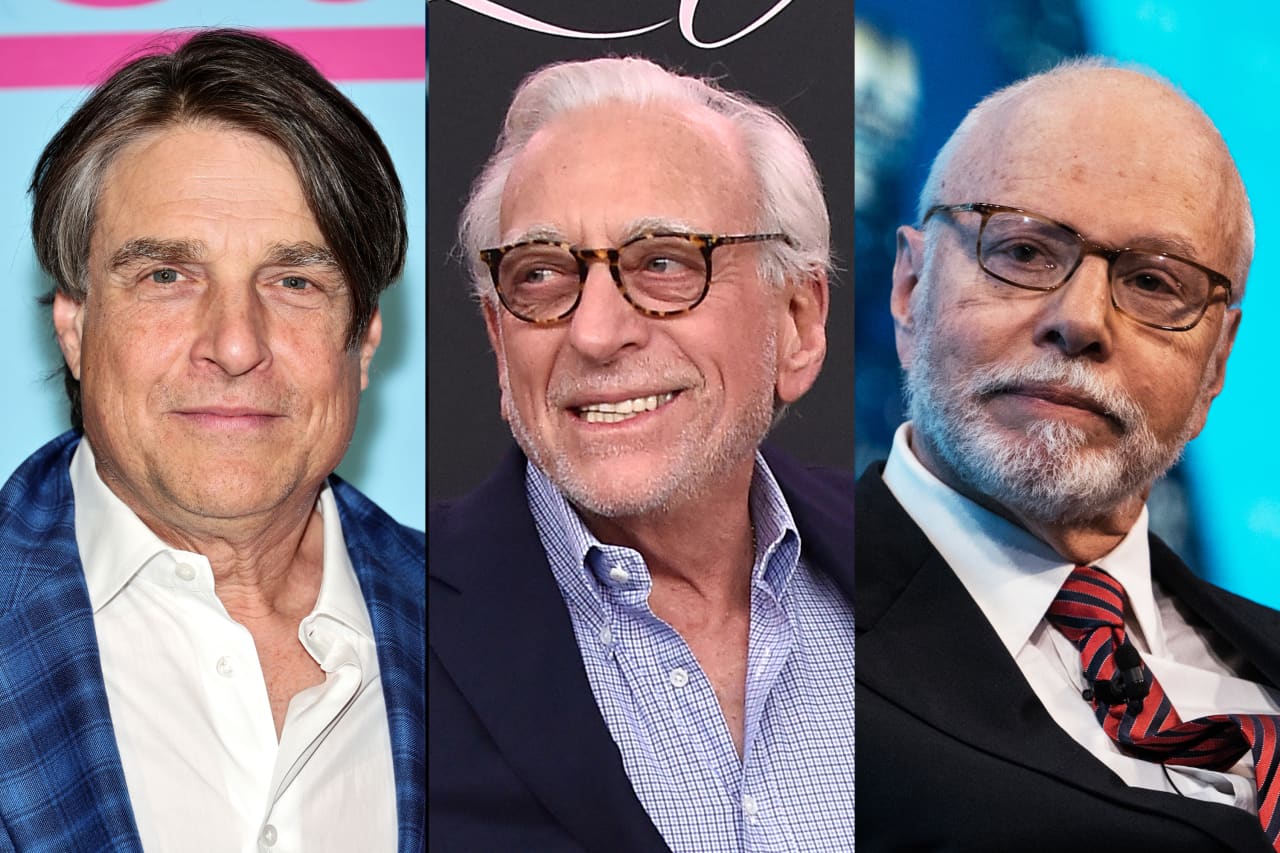Let’s ‘Double-Click’ on the Latest Cringeworthy Corporate Buzzword
You may want to examine or delve into the phrase, which has become pervasive in conference calls and grates on many; ‘It’s almost like a joke’
Ruben Roy isn’t a guy who tends to beat himself up, but he’s still chagrined about what he said on an earnings call last month.
A managing director at Stifel Financial , Roy dialled in to hear the chief executive of a healthcare company discuss its latest results. During the Q&A, Roy asked the speaker to elaborate on his remarks about investment opportunities.
“I wanted to double-click a bit on some of the commentary you had,” Roy said, instantly cringing.
One of the fastest-spreading corporate buzzwords in recent years, “double-click” is both polarising and pervasive. Particularly on Wall Street, the figure of speech is now being used as a shorthand for examining something more fully, akin to double-clicking to see a computer folder’s contents. Some, like Roy, find the idiom obnoxious or twee. Double-click defenders say the phrase encourages deeper thinking.
Either way, it’s become a verbal tic du jour. Executives and analysts dropped double-click 644 times in corporate conference calls and events during the first half of the year, according to VIQ Solutions, up from 139 times in the same period of 2020.
“It’s almost like a joke. People are like, oh here we go with double-click,” says Roy, who’d been trying to avoid using the term when he accidentally let it slip. Colleagues, he says, haven’t let him forget it.
Annie Mosbacher, a Los Angeles-based marketer, recalls snapping to attention last year when she heard an executive use the phrase during a strategy meeting. Afterward, she and colleagues discussed it: “It was like, oh my gosh, double-click? I guess this is a thing now?”
The new jargon makes her roll her eyes. “Can’t we just say ‘this is an area we need to focus on?’” she says. “We regurgitate this sort of lingo as though it means something, and usually it’s about trying to be impressive more than anything else.”
Not so, says Ruben Linder, who’s owned a small audio and video production business in San Antonio for 25 years. These days, with the rise of technology and a more hectic corporate life, Linder says people need reminders to stop and examine what matters—to double-click, if you will.
“The term is simple, but it’s really profound,” he says. He tries to carve out time to go to a cafe twice monthly with a notebook and engage in reflection.
“I’ll double-click on my business, double-click on my life,” he says. “I double-click on everything now.”
Double-click lingo has leapfrogged beyond corporate America. While CEOs including Walmart’s Douglas McMillon and Nvidia ’s Jensen Huang have deployed the term, so, too, have congressional representatives, influencers and authors such as parenting guru Dr. Becky Kennedy.
The phrase is “innovative,” says Beth DelGiacco, a vice president of corporate communications at biotech company Argenx , who praises its efficiency.
“It’s only a few syllables. Everyone knows what you mean when you say it,” says DelGiacco, who regularly trots it out with peers.
Tech-inflected buzzwords are especially apt to gain traction—think “network,” “bandwidth” or “take offline”—because they can sound smart or cutting-edge, says Doug Guilbeault, an assistant professor at UC Berkeley’s Haas School of Business who has studied corporate jargon.
The inventor of the literal double-click, former Apple designer Bill Atkinson, isn’t convinced. Reached while boating on a recent weekday, Atkinson, now retired, says he’s never heard anyone use double-click as a metaphor and would steer clear of such usage himself, preferring more straightforward language.
He adds that since inventing the function in 1979, he’s come to regret it. He now thinks an extra “Shift” button on the mouse would have been more user-friendly.
“The double-click was a mistake,” says Atkinson, who left tech in 1995 to pursue nature photography. Personally, he double-clicks less frequently these days, given the rise of mouseless devices like tablets and smartphones.
“I double-tap, or I tap,” he says. “I long-press.”
Buzzwords tend to come and go, says HR consultant Nancy Settle-Murphy, noting that other tech-inspired jargon, such as “RTFM”—or read the f—ing manual—are less commonly used today than they once were.
“There are fewer manuals now,” says Settle-Murphy, who recently installed a video doorbell at her home and notes it didn’t come with any pictures or diagrams.
Corporate jargon can be alienating. At a conference, Settle-Murphy was thrown when an audience member asked the speaker to double-click on a point they’d made.
“I thought, ‘these are slides, there’s no link, how can they double-click?’” she says, admitting she later searched online to find the new meaning.
Double-click has a long pedigree in the sales world. Matt Sunshine, head of the Center for Sales Strategy, which trains salespeople, says when he sold ad spots for a local radio station in Dallas in the 1990s, peers commonly used the term.
“Sales leaders would say, ‘Hey, you need to make sure you double-click on that’ with your prospects,” Sunshine says, meaning delve more deeply into any issues customers might raise, as in “Tell me more.”
While he doesn’t know exactly when it first took off, he says the phrase neatly encapsulates a core principle in effective sales strategy, in which salespeople seek to identify and address customers’ needs and concerns, instead of defaulting to one-size-fits-all pitches.
Double-clicking can help identify new business prospects, says Scott Bond, vice president of consumer services at Canadian real-estate company Rennie, which recently opened a U.S. location in Seattle.
Not long ago, Bond was on a Zoom call with his boss and some new business contacts based in southern California. The group hit it off, and afterward, Bond found himself mulling possibilities.
“I looked at my boss and said, hold on, I think we’re being presented with an opportunity here,” he says. “Why don’t we dive in and learn a little more?” His boss agreed, and the company is now planning to open its second American location in the Palm Springs area.
“We double-clicked,” he says.
 Copyright 2020, Dow Jones & Company, Inc. All Rights Reserved Worldwide. LEARN MORE
Copyright 2020, Dow Jones & Company, Inc. All Rights Reserved Worldwide. LEARN MORE
This stylish family home combines a classic palette and finishes with a flexible floorplan
Just 55 minutes from Sydney, make this your creative getaway located in the majestic Hawkesbury region.
Impact investing is becoming more mainstream as larger, institutional asset owners drive more money into the sector, according to the nonprofit Global Impact Investing Network in New York.
In the GIIN’s State of the Market 2024 report, published late last month, researchers found that assets allocated to impact-investing strategies by repeat survey responders grew by a compound annual growth rate (CAGR) of 14% over the last five years.
These 71 responders to both the 2019 and 2024 surveys saw their total impact assets under management grow to US$249 billion this year from US$129 billion five years ago.
Medium- and large-size investors were largely responsible for the strong impact returns: Medium-size investors posted a median CAGR of 11% a year over the five-year period, and large-size investors posted a median CAGR of 14% a year.
Interestingly, the CAGR of assets held by small investors dropped by a median of 14% a year.
“When we drill down behind the compound annual growth of the assets that are being allocated to impact investing, it’s largely those larger investors that are actually driving it,” says Dean Hand, the GIIN’s chief research officer.
Overall, the GIIN surveyed 305 investors with a combined US$490 billion under management from 39 countries. Nearly three-quarters of the responders were investment managers, while 10% were foundations, and 3% were family offices. Development finance institutions, institutional asset owners, and companies represented most of the rest.
The majority of impact strategies are executed through private-equity, but public debt and equity have been the fastest-growing asset classes over the past five years, the report said. Public debt is growing at a CAGR of 32%, and public equity is growing at a CAGR of 19%. That compares to a CAGR of 17% for private equity and 7% for private debt.
According to the GIIN, the rise in public impact assets is being driven by larger investors, likely institutions.
Private equity has traditionally served as an ideal way to execute impact strategies, as it allows investors to select vehicles specifically designed to create a positive social or environmental impact by, for example, providing loans to smallholder farmers in Africa or by supporting fledging renewable energy technologies.
Future Returns: Preqin expects managers to rely on family offices, private banks, and individual investors for growth in the next six years
But today, institutional investors are looking across their portfolios—encompassing both private and public assets—to achieve their impact goals.
“Institutional asset owners are saying, ‘In the interests of our ultimate beneficiaries, we probably need to start driving these strategies across our assets,’” Hand says. Instead of carving out a dedicated impact strategy, these investors are taking “a holistic portfolio approach.”
An institutional manager may want to address issues such as climate change, healthcare costs, and local economic growth so it can support a better quality of life for its beneficiaries.
To achieve these goals, the manager could invest across a range of private debt, private equity, and real estate.
But the public markets offer opportunities, too. Using public debt, a manager could, for example, invest in green bonds, regional bank bonds, or healthcare social bonds. In public equity, it could invest in green-power storage technologies, minority-focused real-estate trusts, and in pharmaceutical and medical-care company stocks with the aim of influencing them to lower the costs of care, according to an example the GIIN lays out in a separate report on institutional strategies.
Influencing companies to act in the best interests of society and the environment is increasingly being done through such shareholder advocacy, either directly through ownership in individual stocks or through fund vehicles.
“They’re trying to move their portfolio companies to actually solving some of the challenges that exist,” Hand says.
Although the rate of growth in public strategies for impact is brisk, among survey respondents investments in public debt totaled only 12% of assets and just 7% in public equity. Private equity, however, grabs 43% of these investors’ assets.
Within private equity, Hand also discerns more evidence of maturity in the impact sector. That’s because more impact-oriented asset owners invest in mature and growth-stage companies, which are favored by larger asset owners that have more substantial assets to put to work.
The GIIN State of the Market report also found that impact asset owners are largely happy with both the financial performance and impact results of their holdings.
About three-quarters of those surveyed were seeking risk-adjusted, market-rate returns, although foundations were an exception as 68% sought below-market returns, the report said. Overall, 86% reported their investments were performing in line or above their expectations—even when their targets were not met—and 90% said the same for their impact returns.
Private-equity posted the strongest results, returning 17% on average, although that was less than the 19% targeted return. By contrast, public equity returned 11%, above a 10% target.
The fact some asset classes over performed and others underperformed, shows that “normal economic forces are at play in the market,” Hand says.
Although investors are satisfied with their impact performance, they are still dealing with a fragmented approach for measuring it, the report said. “Despite this, over two-thirds of investors are incorporating impact criteria into their investment governance documents, signalling a significant shift toward formalising impact considerations in decision-making processes,” it said.
Also, more investors are getting third-party verification of their results, which strengthens their accountability in the market.
“The satisfaction with performance is nice to see,” Hand says. “But we do need to see more about what’s happening in terms of investors being able to actually track both the impact performance in real terms as well as the financial performance in real terms.”
This stylish family home combines a classic palette and finishes with a flexible floorplan
Just 55 minutes from Sydney, make this your creative getaway located in the majestic Hawkesbury region.






















